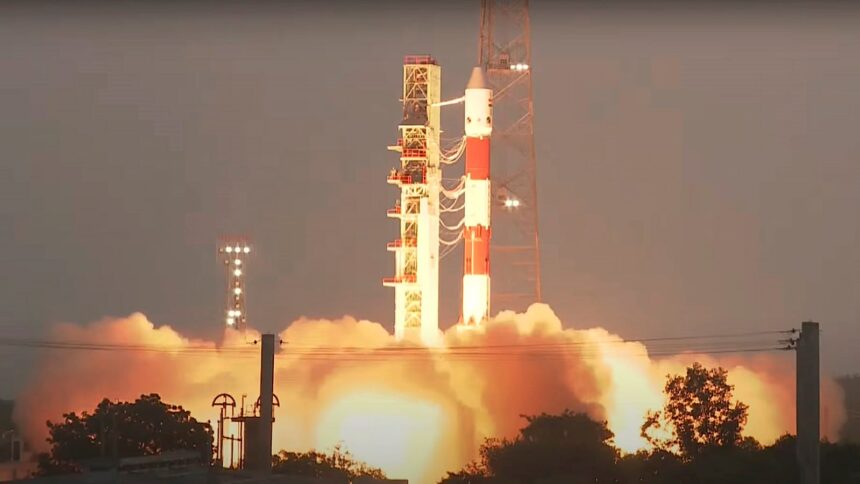A new draft of the Space Activities Bill, which seeks to facilitate greater participation of private industry in space sector, and grant statutory powers to IN-SPACe, which acts as a sort of a regulator for private space companies, has been finalised, and ready for circulation to the stakeholder ministries, an official told The Indian Express.
This bill had earlier been prepared in 2017 and shared in public domain for comments and suggestions. But it could never be finalised and introduced in Parliament. In subsequent years, the government created in 2020 and formulated the Indian Space Policy 2023 with the same intent and purpose.
But the need for a legislative framework has remained, particularly with the proliferation of private space companies indulging in a variety of space activities in the last few years. The need to regulate space activities becomes necessary also because of the fact that the Indian government has to adhere to the provisions of the various international treaties it has acceded to on the use of outer space. Under these treaties, the Indian government is responsible for the consequences of all space activities being carried out from its jurisdiction.
“The bill is now almost ready and will soon be circulated to the stakeholder ministries for consultations,” Pawan Goenka, chairperson of INSPACe, told .
“It will provide legal backing to the authorisation and regulation processes in the space industry. As of now, authorisations to private players are provided on a case-to-case basis, as per the policies brought out by the agency. But INSPACe itself lacks statutory authority. The bill will grant it that,” Goenka said.
The new draft incorporates the suggestions made earlier, and accounts for the substantively changed situation in terms of participation of private industry in space sector. The 2017 draft had provisions of a three-year imprisonment and a fine of over Rs one crore for offences such as carrying out a space activity without a license, furnishing false information, or polluting the outer space. It also had a provision saying any intellectual property right created in the outer space would belong to the government. Those provisions have been amended in line with the suggestions and recommendations received from the industry.
Private industry has been asking for a legal framework that will enable the sector to grow at a rapid pace. One of their specific demands has been to include a provision that allows them to access easy insurance for their high value systems. Currently, the cost of insuring space assets and space activities is very high, making them unaffordable for upcoming start-ups.
“The provision for insurance will indeed be a part of the draft bill,” Goenka said.
The bill is seen as an important step towards achieving the goal of a 44 billion dollar space market in India by the year 2033, at least one fourth of which, 11 billion dollars is supposed to be generated from exports. In 2022, India’s space market was estimated to be worth 8.4 billion dollars.
“After the internal consultation with the stakeholder ministries, the draft bill will be sent for a wider consultation to different ministries and then shared with the general public. Once we get all the inputs — depending on what the inputs are, not everything has to be included but these are things that have to be accounted for — we will create the final draft. The final draft will go to the minister in-charge, which is the PM in this case. Once it is approved, it will go to the cabinet and then the parliament,” Goenka said.
He said at least three state governments had come up with their own space policies. This is the first step towards setting up manufacturing hubs in these states.
“States will do the manufacturing, it will not be the central government. What we are doing is incentivising the states to set up manufacturing parks specific to space. So far three have come up,” Goenka said.
The states that have come up with a policy include , Gujarat, and Karnataka. IN-SPACe is also in talks with Maharashtra and possibly another state to set up such manufacturing hubs. “We will not do more than four to five hubs right now because there isn’t enough room for more. Let the activities grow and then we will do more,” he said.
He added that the space manufacturing hub in Tamil Nadu will focus on launch vehicles, Gujarat on satellites and other payloads, while the hub in Karnataka is likely to be more general as most of the space activities take place in .
Her stories have resulted in the city government investing in high-end tests for the poor and acknowledging errors in their official reports.
Dutt also takes a keen interest in the country’s space programme and has written on key missions like Chandrayaan 2 and 3, Aditya L1, and Gaganyaan.
She was among the first batch of eleven media fellows with RBM Partnership to End Malaria. She was also selected to participate in the short-term programme on early childhood reporting at Columbia University’s Dart Centre. Dutt has a Bachelor’s Degree from the Symbiosis Institute of Media and Communication, Pune and a PG Diploma from the Asian College of Journalism, Chennai. She started her reporting career with the Hindustan Times.
When not at work, she tries to appease the Duolingo owl with her French skills and sometimes takes to the dance floor.








